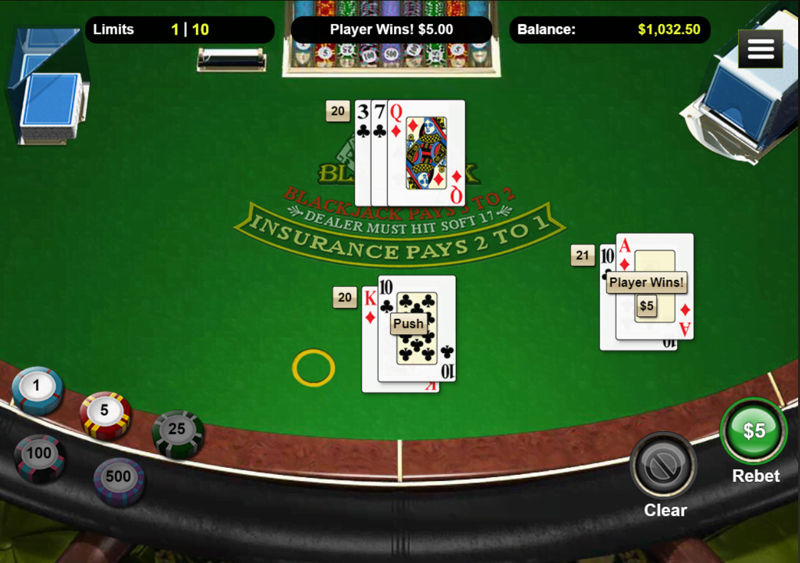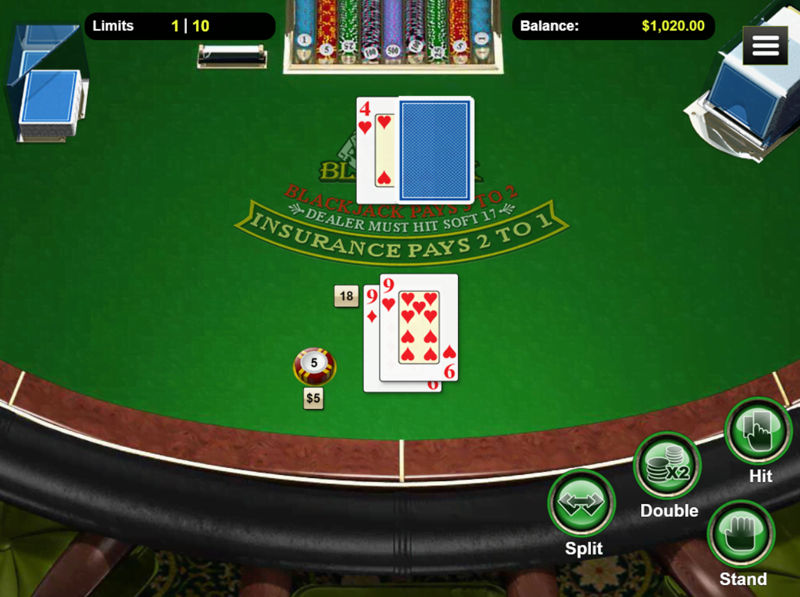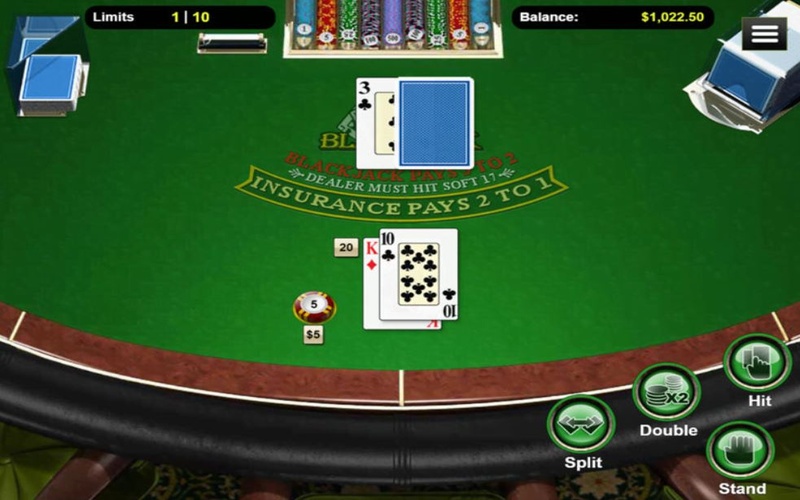Spitting 10s in blackjack is generally considered to be a bad idea, and if asked, most experts and more experienced casual players will tell you to never do it.
Their reasoning is that two 10s combine to give the second strongest hand in the game of blackjack. Therefore, by splitting you are potentially throwing away a winning hand.
The logic here is sound, but is that always the case, or is there a scenario when splitting 10s can work in your favour? We decided to take a deeper look, and we were surprised to see it’s not as clear as we thought.
To finally lay this topic to rest, we ran an analysis on the situation and whether there are some cases where splitting makes sense. Here’s what we concluded.
Is It a Good Idea to Split 10s in Blackjack?
To get to the bottom of the issue, we first have to ask ourselves – when did the idea of splitting 10s first come to be?
We can trace the theory all the way to 1949 and the book “Scarne on Cards” by John Scarne, one of the early casino experts. He mentioned that one should split 10s if the dealer has a 5 or 6. The last mention of this strategy is in Edward Thorp’s “Beat the Dealer” from 1962.
But there’s a problem with both works – they come from a time when computer simulations were either unavailable or unreliable. Nowadays, there’s software and hardware that can run tens of millions of hand simulations every second. And most experts and computer programs agree that splitting 10s is an unnecessary risk… most of the time.
When Splitting 10s in Blackjack Makes Sense

Notice how we said most of the time? Well, that’s because we refuse to speak in absolutes. Blackjack is a game of luck, and everything is possible. So, let’s put the question a bit differently – when does it make sense to split 10s in blackjack? Our findings suggest that it could be a sensible decision in two cases:
- There’s a high concentration of Aces and Suited cards left in the deck. This is a very specific scenario and involves card counting. It only works at select land-based casino and at live dealer tables with a single deck that isn’t shuffled all the time. If you know how to count cards and are certain there’s a high chance of getting Blackjack or at least a 19, go for it.
- The dealer can easily bust or if they have a weak hand. If the dealer has a 13, 14, 15, or 16, you can split tens, especially if there is no one else at the table. A single six on the dealer side is statistically the best shot of winning with a pair of split 10s, but it’s risky even then and again this has a higher chance of success when there is a high concentration of face cards in the deck.
Again, these two scenarios are quire specific, and in general we’d agree that you shouldn’t split 10s in blackjack. Statistics indicate that there’s a 9.2% chance of being dealt a straight 20 (in single-deck variants). Why spoil your almost perfect hand.
What Other Blackjack Hands Shouldn’t Be Split?
Splitting or double-splitting in special variants brings a lot of freedom to the average player. Just as splitting 10s doesn’t make sense, there are also some other cases and pairs where splitting is a bad idea. This includes the following:
- Pair of fours. Eight isn’t ideal, but it’s much better than two weak hands. And besides, it’s mathematically impossible to bust out at this point. The highest you can go is 19 if you’re dealt an Ace.
- Pair of fives. Treat this pair like a single ten. If the dealer has anything but a 9, 10, or Ace, just hit and hope Lady Luck is on your side. You can get Blackjack but risk busting out if you get more than six on one of the split hands.
As mentioned previously, if you’ve noticed the concentration of suited cards in the deck is high, taking a gamble could make more sense. But just to be safe, we’d suggest you always hit on these two hands.
This doesn’t mean splitting is always a bad idea though. On the contrary – sometimes, splitting is the best course of action.
What Blackjack Hands Should You Split?

There are several situations where you should split your blackjack hand. We won’t say things like always, by any means or absolutely, simply because there are external variables you need to consider. Perhaps you want to try out a new strategy, or you don’t want to risk the rest of your bankroll.
In a vacuum, however, these hands can be a good reason to split:
- Twos, threes, and sevens IF the dealer has seven or less. Most of the time, twos (4) and threes (6) don’t make sense alone or on their own. That’s why you can double your chances of getting an Ace or suited card, especially if there are other players at the table. If the dealer has more than a seven, you’re putting yourself at a disadvantage.
- Sixes only IF the dealer has two, three, four, five or six. Sixes, if kept together, pose a significant risk for busting. A weak hand on the dealer’s side is an excellent opportunity to kill two birds with one stone – mitigate the risk and double your chances of a ten or Ace.
- Nines ONLY verses two, three, four, five, six, eight and nine. An 18 is the worst-case scenario and always warrants a split. Stand if the dealer has seven, ten or an Ace as the upcard.
Should You Split 10s in Blackjack: Summary
You should almost never split 10s in blackjack. Statistically, there’s a less than 10% chance of getting such a combo. And there’s also a high chance you’ll win against the dealer. Most experts and computer simulations agree. Leave the 20 alone as often as you can.
Card counting is the only exception, as splits make sense when there’s a high concentration of tens and aces in the remaining deck. You should also never split fours and fives.
If the dealer has a weak hand, twos, threes, and sevens, should always be split. For specific cases, take your time and don’t let the bet timer distract you. If you’re not sure, reduce your bets or stand. We learn through mistakes, after all. Good luck!
